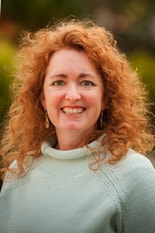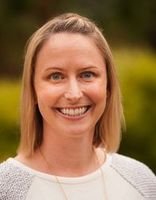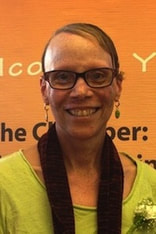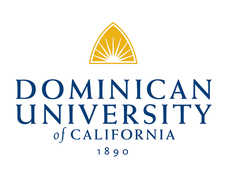ABOUT THE INITIATIVE
Dominican University of California’s Department of Special Education was commissioned by the Marin County Special Education Local Plan Area (SELPA) to identify evidence-based behavioral interventions for the support of students, teachers and local schools. In particular, the task was to identify positive, evidence-based classroom practices leading to academic and behavioral success.
Dominican University of California’s Department of Special Education was commissioned by the Marin County Special Education Local Plan Area (SELPA) to identify evidence-based behavioral interventions for the support of students, teachers and local schools. In particular, the task was to identify positive, evidence-based classroom practices leading to academic and behavioral success.
MEET THE AUTHORS

Jacquelyn M. Urbani, Ph.D. - currently serves as Associate Professor and Director of the Early Childhood Special Education Program at Mills College in Oakland, CA. She previously directed the K-12 Special Education Credential Program at Dominican University of California, where she also taught in the multiple subjects and master's degree programs. She earned her doctorate in Special Education from the joint program between the University of California, Berkeley and San Francisco State University. Dr. Urbani was an educator at the Pennsylvania School for the Deaf for over a decade, working with students with various disabilities. She was the founding director of Great Expectations Inclusive Preschool, which was a collaboration between Lifehouse Agency, Marin County Office of Education, and Dominican University; she continues to serve there as educational consultant. Dr. Urbani has presented nationally and internationally on her research, which includes the following topics: dialogic reading for improved language and literacy, housing options for adults with autism, integration of 21st century skills in teacher education, the use of lesson study for general and special education teachers, and the impact of arts education for students with special needs. Dr. Urbani can be reached at [email protected].

Colleen D. Arnold, Ed.D. - serves as a consultant at Cypress School, a program for students with autism and complex behavioral needs, providing curriculum support, teacher supervision, and program support in the areas of assessment, behavior, and Individualized Education Plans. Dr. Arnold was an education specialist in both the public and non-public school sectors for over ten years, and earned her doctorate in special education at the University of San Francisco. She provides trainings for professionals and parents on a wide array of special education topics and has taught university level courses at Dominican University and University of San Francisco. She is a board member of Matrix Parent Network & Resource Center, a non-profit organization working to educate and support families of children with special needs and the founder of Arnold Advocacy, LLC. Dr. Arnold can be reached at [email protected].

Billye Brown, Ph.D. - served as the Chair of Special Education at Dominican University of California, where she taught for 13 years before retiring in 2015. She has served as an instructor with California State University, East Bay and San Francisco State University, as well as a Resource Specialist for the Oakland Unified School District and Chicago Public Schools. Dr. Brown served in various capacities with Head Start to provide support services to children with special needs and their families; she was the Early Childhood Disabilities Services Manager in San Francisco and a reviewer of Head Start programs throughout the United States and the South Pacific. She has written several credential programs and nationally approved research grants, including a project with the California Department of Education investigating the disproportionate representation of African American students in special education classes. Dr. Brown has given multiple presentations and professional developments and has earned multiple awards for her service in education. Dr. Brown can be contacted at [email protected].
Recommended citation:
Urbani, J. M., Arnold, C. D., & Brown, B. (2018). Evidence based interventions for positive behavior support. Retrieved from behaviormarinselpa.org.
Urbani, J. M., Arnold, C. D., & Brown, B. (2018). Evidence based interventions for positive behavior support. Retrieved from behaviormarinselpa.org.
RESEARCH CRITERIA
Evidence Based Practices (EBP)
This website is designed to assist teachers in finding effective strategies to address behavior problems. Education is joining other fields, such as medicine and psychology, to identify and implement Evidence-Based Practices (EBP).
EBP are identified as those practices or interventions that have been evaluated through research methodologies and have demonstrated benefits to students. Instead of basing educational decisions on whims or trends, teachers can now choose strategies that have been proven to be effective. Research methodologies used include: experimental groups, correlational, single subject, and qualitative designs.
How Articles Were Chosen
The 3 authors from Dominican College needed a way to identify quality research from that lacking rigor, reliability, and validity. They turned to the Council on Exceptional Children (CEC) to identify trustworthy research.
In 2014, CEC convened a work group of 7 experts who generated the Quality Standards for Evidence-Based Practice. The authors used this form to review and assess each research article. If the article did not meet the predetermined standards (minimum score of 6.5 out of 8), it was not deemed acceptable and was, therefore, not used for this project.
To begin this process, the authors read and scored an article together, using the quality indicators form, to ensure similar assessment and calibration. Each author then shared three articles, again to ensure inter-rater reliability. These steps ensured that each article was analyzed consistently for quality indicators that met expectations.
Evidence Based Practices (EBP)
This website is designed to assist teachers in finding effective strategies to address behavior problems. Education is joining other fields, such as medicine and psychology, to identify and implement Evidence-Based Practices (EBP).
EBP are identified as those practices or interventions that have been evaluated through research methodologies and have demonstrated benefits to students. Instead of basing educational decisions on whims or trends, teachers can now choose strategies that have been proven to be effective. Research methodologies used include: experimental groups, correlational, single subject, and qualitative designs.
How Articles Were Chosen
The 3 authors from Dominican College needed a way to identify quality research from that lacking rigor, reliability, and validity. They turned to the Council on Exceptional Children (CEC) to identify trustworthy research.
In 2014, CEC convened a work group of 7 experts who generated the Quality Standards for Evidence-Based Practice. The authors used this form to review and assess each research article. If the article did not meet the predetermined standards (minimum score of 6.5 out of 8), it was not deemed acceptable and was, therefore, not used for this project.
To begin this process, the authors read and scored an article together, using the quality indicators form, to ensure similar assessment and calibration. Each author then shared three articles, again to ensure inter-rater reliability. These steps ensured that each article was analyzed consistently for quality indicators that met expectations.
References:
- Council for Exceptional Children, (2014). Council for Exceptional Children: Standards for evidence-based practices in special education, Exceptional Children, 80(4), 504-511. doi: 10.1177/0014402914531388
- Evidence Based Practices, revised from CEC, 2014 - DOCX | PDF
- Gersten, R., Fuchs, L. S., Compton, D., Coyne, M., Greenwood, C., & Innocenti, M. S. (2005). Quality indicators for group experimental and quasi-experimental research in special education. Exceptional children, 71(2), 149-164. doi: 10.1177/001440290507100202
- Horner, R. H., Carr, E. G., Halle, J., McGee, G., Odom, S., & Wolery, M. (2005). The use of single-subject research to identify evidence-based practice in special education. Exceptional children, 71(2), 165-179. doi: 10.1177/001440290507100203
- Odom, S. L., Brantlinger, E., Gersten, R., Horner, R. H., Thompson, B., & Harris, K. R. (2005). Research in special education: Scientific methods and evidence-based practices. Exceptional Children, 71(2), 137-148. doi: 10.1177/001440290507100201
What Works Clearinghouse
WEBSITE DESIGN AND EDITING

April M. Port, M.S.- served as Coordinator for the Marin County SELPA for 25 years before retiring in 2014. Ms. Port was also the Director of Special Education for the Novato Unified School District. Before coming to the Marin County SELPA, she taught a Special Day Class at Redwood High School for 8 years for the Tamalpais Union High School District and the Marin County Office of Education. Ms. Port developed, coordinated, and taught the Resource Training Program for the Marin County SELPA for 15 years. In addition to her work with the SELPA, she has served as an instructor for California State University San Francisco Administrative Credential Program, the University of California, and Dominican University. She can be reached at [email protected].
|
The Marin County Special Education Local Plan Area (SELPA) works collaboratively with 19 school districts and other public agencies throughout Marin County to make available a full continuum of special education services. The SELPA provides support to local education agencies (LEA) in the following areas:
|
|
Dominican University of California is located in Marin County and offers graduate programs that culminate in a Master of Science (MS) in Education degree. These programs are designed for educators and other professionals who are interested in teaching and seek preparation for leadership roles and responsibilities.
Features:
|





